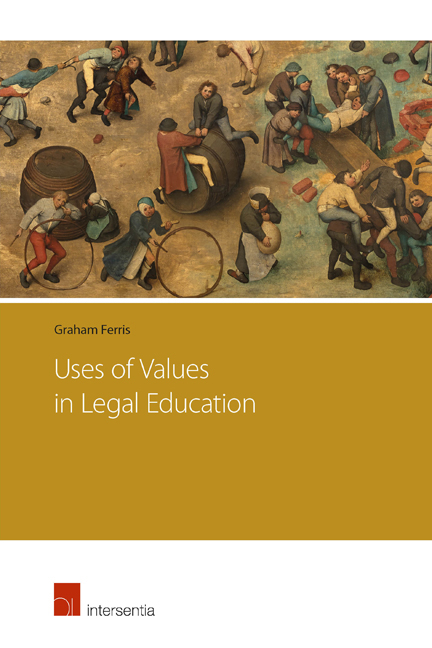Book contents
- Frontmatter
- Dedication
- Foreword
- Preface
- Acknowledgements
- Contents
- PART I STATUS QUO AND WHERE TO GO
- PART II HOW VALUES SUPPORT LEARNING
- PART III TEACHING ETHICS
- Chapter 5 Teaching Ethics
- Chapter 6 Seeing Ethical Problems
- Chapter 7 Teaching Moral Judgment
- Chapter 8 Ethical Identity
- Chapter 9 Ethical Action
- Table of Cases
- Bibliography
- Index
Chapter 5 - Teaching Ethics
from PART III - TEACHING ETHICS
Published online by Cambridge University Press: 22 November 2017
- Frontmatter
- Dedication
- Foreword
- Preface
- Acknowledgements
- Contents
- PART I STATUS QUO AND WHERE TO GO
- PART II HOW VALUES SUPPORT LEARNING
- PART III TEACHING ETHICS
- Chapter 5 Teaching Ethics
- Chapter 6 Seeing Ethical Problems
- Chapter 7 Teaching Moral Judgment
- Chapter 8 Ethical Identity
- Chapter 9 Ethical Action
- Table of Cases
- Bibliography
- Index
Summary
The subject matter of the following four chapters is the teaching of ethics. This may include professional ethics. However, it encompasses far broader concerns. Oddly enough there is academic resistance to the teaching of ethics in legal education. Less oddly there is bureaucratic and political resistance. The resistance seems to come from four linked ideas. First, that modern society does not have a consensual ethical or value informed centre, and therefore we must not teach values. This idea has already been addressed in chapter 3. Second, that ethics or morality or values are somehow outside of the core concerns of higher educational practice: the ‘technocratic ideal’. Third, that behaviour, the living of an ethical life, is outside the tasks of higher education: the ‘cognitive bias’. Lastly, that it is simply not possible to teach such matters as ethics in a way that will change behaviour, which is sometimes linked to the difficulty of assessing or testing the efficacy of ethical education: the ‘efficacy objection’.
The second to fourth of these arguments will be considered here, as a necessary preliminary to the rest of Part III. The remaining chapters in Part III deal with the necessary components for ethical action. Chapter 6 will explore moral sensitivity, a difficult capacity to develop through teaching. Chapter 7 will focus on moral reasoning, which is the component of ethical action that most closely resembles the cognitive and rational subject matter familiar to legal educators. Chapter 8 will give an account of educational practices that endeavour to teach ethics in a way that is intended to produce changes in individual beliefs, in choices around group membership and personal identity. Chapter 9 will address teaching and learning that might change behaviour in post-educational life. All four chapters have a focus on student experiences at undergraduate level. Chapter 8 will return to the problem of the proper limits to academic instruction, specifically the need to avoid assessing for ethical or political conformity with the values of academics. This return to more general concerns is necessary because of the especial risks posed by inappropriate practice in this intimate area of education.
- Type
- Chapter
- Information
- Uses of Values in Legal Education , pp. 147 - 158Publisher: IntersentiaPrint publication year: 2015



